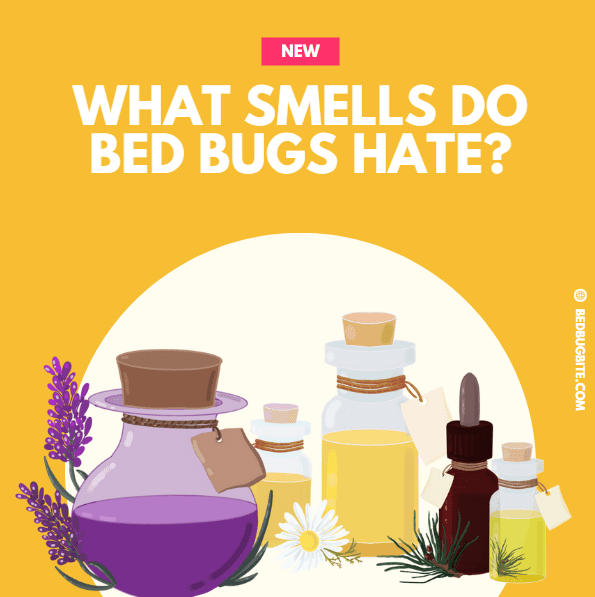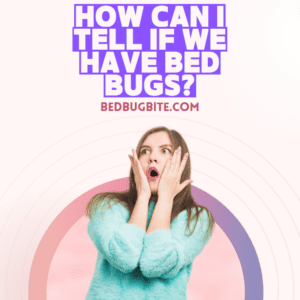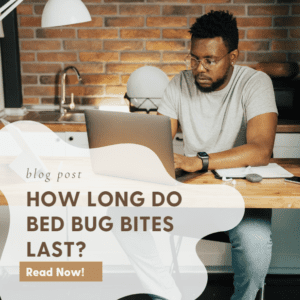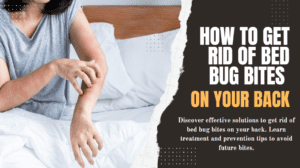Introduction
Welcome to “Bed Bug Bite,” your ultimate resource for all things related to bed bugs. As a leading authority on bed bug knowledge, we understand the distress and frustration these tiny pests can cause. In this comprehensive guide, we delve into the intriguing world of bed bug sensory perception. Particularly focusing on their aversion to certain smells. Armed with the latest research and expert insights, we aim to equip you with the knowledge needed to combat bed bugs naturally and effectively. …Click here to read more about Bed Bugs!
Understanding Bed Bug Sensory Perception
The Role of Smell in Bed Bug Detection
Bed bugs possess a remarkable ability to detect odors in their environment, which plays a crucial role in their survival and behavior. According to recent studies, bed bugs rely heavily on their sense of smell to locate potential hosts and identify suitable habitats for harborage. Their olfactory receptors are finely tuned to detect chemical cues emitted by humans. Such as carbon dioxide and body odors, guiding them to their next blood meal. However, emerging research suggests that bed bugs also exhibit sensitivity to certain odors that they find repugnant. Potentially serving as natural repellents.
Factors Affecting Bed Bug Response to Smells
The responsiveness of bed bugs to specific odors can vary depending on several factors. Including their developmental stage and the surrounding environment. Younger bed bugs, known as nymphs, may exhibit different olfactory preferences compared to adult bugs. Additionally, environmental factors such as temperature, humidity, and the presence of other chemicals in the air can influence how bed bugs perceive and respond to different smells. By understanding these factors, we can better leverage the power of scent to deter and repel bed bugs effectively.
Smells That Repel Bed Bugs

Essential Oils
One of the most popular natural remedies for repelling bed bugs is the use of essential oils. These concentrated plant extracts contain potent compounds that emit strong fragrances, often deterring bed bugs from infesting certain areas. Lavender oil, for example, is renowned for its calming scent. But it also possesses insect-repellent properties that can help keep bed bugs at bay. Similarly, peppermint oil and tea tree oil have been found to be effective in repelling bed bugs due to their strong odors and insecticidal properties.
Herbs and Plants
In addition to essential oils, certain herbs and plants can also serve as natural repellents against bed bugs. Fresh mint, with its refreshing scent, is known to repel a variety of pests, including bed bugs. Eucalyptus leaves, when crushed or placed strategically around infested areas. Release a powerful aroma that bed bugs find unpleasant, making them less likely to linger. These natural remedies offer a safe and eco-friendly alternative to chemical insecticides, providing homeowners with peace of mind.
Other Natural Repellents
In addition to essential oils and herbs, several other natural substances have been found to repel bed bugs effectively. Clove, with its strong and spicy aroma, is known to have insect-repellent properties that can deter bed bugs from infesting treated areas. Similarly, citrus fruits such as lemons and oranges contain compounds that bed bugs find displeasing. Making them effective repellents when used in sprays or infusions. Cinnamon, with its warm and aromatic scent, is another natural ingredient that can help repel bed bugs when used in conjunction with other repellents.
How to Use Smells to Repel Bed Bugs
DIY Sprays and Solutions
Harnessing the power of scent to repel bed bugs can be as simple as creating homemade sprays and solutions using natural ingredients. By combining essential oils, herbs, and other natural repellents with water or alcohol . You can create potent concoctions that deter bed bugs from infesting your home. These DIY sprays can be applied to bedding, furniture, and other infested areas, providing an added layer of protection against bed bug infestations.
Using Scented Products
In addition to homemade sprays, incorporating scented products into your home can help deter bed bugs and create an unwelcoming environment for these pests. Scented bedding and linen, infused with essential oils or herbal extracts, can help repel bed bugs and prevent them from establishing harborage in your sleeping area. Similarly, using room fresheners and air purifiers that emit pleasant scents can mask the odors that attract bed bugs, reducing the likelihood of infestations.
Precautions and Considerations
Safety Concerns with Essential Oils
While essential oils offer a natural and effective solution for repelling bed bugs. It’s essential to use them safely and responsibly. Concentrated essential oils can be potent and may cause irritation or allergic reactions in some individuals. Particularly when applied directly to the skin or inhaled in high concentrations. To minimize the risk of adverse reactions, always dilute essential oils with a carrier oil or water before use, and test them on a small patch of skin before applying them to larger areas.
Effectiveness vs. Professional Treatment
While natural remedies can be effective in repelling bed bugs. They may not always provide a complete solution, especially in cases of severe infestations. Professional bed bug extermination services utilize a combination of methods, including chemical treatments, heat treatments, and vacuuming, to eliminate bed bugs from your home thoroughly. If you suspect a bed bug infestation or if natural remedies have proven ineffective. It’s essential to seek professional assistance promptly to prevent the problem from worsening.
Maintaining a Bed Bug-Free Environment
Regular Cleaning and Decluttering
One of the most effective ways to prevent bed bug infestations is to maintain a clean and clutter-free environment in your home. Regularly vacuuming carpets, furniture, and other surfaces can help remove bed bugs, eggs, and larvae, reducing the likelihood of infestations. Additionally, decluttering areas where bed bugs are likely to hide, such as closets, drawers, and under the bed, can minimize hiding spots and make it easier to detect and treat infestations.
Monitoring for Signs of Infestation
Early detection is key to preventing bed bug infestations from spreading and becoming more challenging to eradicate. Regularly inspecting your home for signs of bed bugs, such as shed skins, fecal stains, or blood spots on bedding and furniture, can help you identify infestations early on and take prompt action to address them. By staying vigilant and proactive, you can minimize the risk of bed bug infestations and maintain a bed bug-free environment in your home.
Preventive Measures
In addition to cleaning and monitoring for signs of infestation, implementing preventive measures can help reduce the risk of bed bugs entering your home in the first place. When traveling, inspect hotel rooms and luggage for signs of bed bugs before unpacking, and avoid bringing secondhand furniture or clothing into your home without thoroughly inspecting it first. By taking these precautions, you can minimize the likelihood of bed bug infestations and enjoy peace of mind in your home.
Conclusion
In conclusion, understanding the smells that repel bed bugs can empower homeowners to combat infestations naturally and effectively. By leveraging the power of scent with essential oils, herbs, and other natural repellents, you can create an inhospitable environment for bed bugs and prevent infestations from taking hold in your home. However, it’s essential to use these remedies safely and responsibly, and to seek professional assistance when needed, especially in cases of severe infestations. With vigilance, proactive measures, and the right knowledge, you can keep your home bed bug-free and enjoy a peaceful and restful environment.
[Source: CDC]




